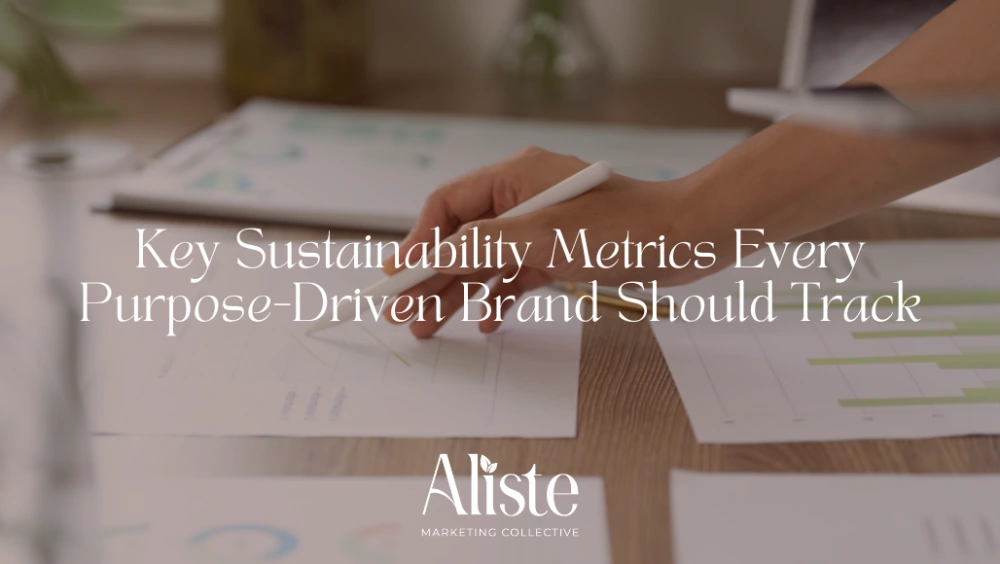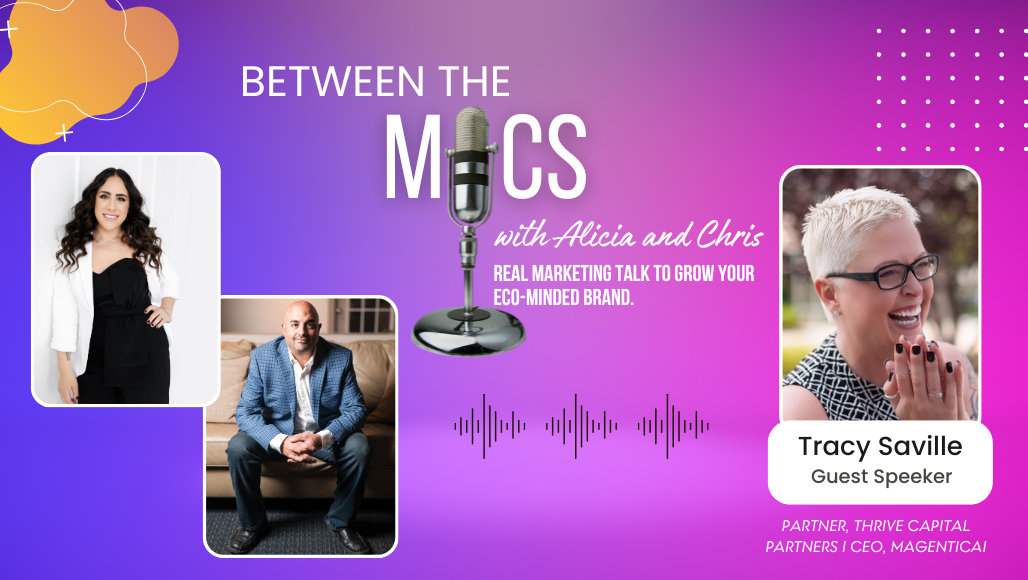The Importance of Measuring Sustainability
It’s no secret that we’re in an era where consumers no longer have time for brands that “do less harm.” They’re going for those who are doing more good! Sustainability is becoming less of a trend and more of a baseline expectation every day, and companies paying lip service will soon be totally out of the picture. Translation: If you’re just green-washing, you’re about to get washed away.
Now, you might already be implementing green initiatives and practices. That’s great! But if you’re not tracking your sustainability metrics, what’s the point?
For purpose-driven brands, measurement is non-negotiable because metrics quantify progress, create accountability, build trust, and inspire continuous improvement. They turn vague aspirations into concrete goals and meaningful outcomes.
It’s time to prove your commitment to the people and planet. In this blog, we’re sharing the numbers your brand should be checking.
Environmental Metrics to Track
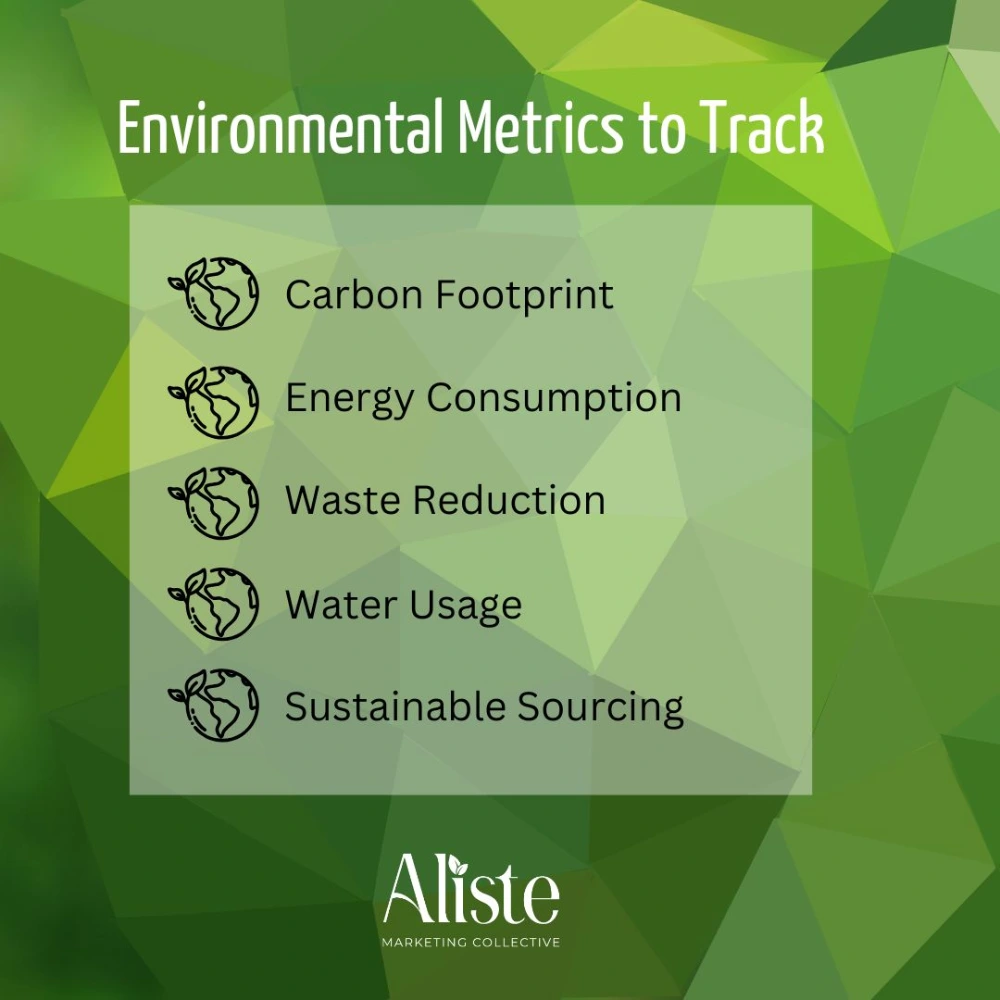
Environmental metrics are all about your business’s impact on the natural world. Track consistently so you can move closer to true ecological stewardship!
- Carbon Footprint
Measure total greenhouse gas emissions, including Scope 1 (direct emissions), Scope 2 (indirect emissions), and Scope 3 (purchased sources). Use this data to identify hotspots and prioritize strategies to reduce your footprint.
- Energy Consumption
Let’s say you want to dramatically cut your energy consumption and lower long-term costs by transitioning to renewable sources like wind or solar. Monitor your total energy use across facilities, data centers, and production, and look for opportunities!
- Waste Reduction
How much waste do your operations generate? How much of this waste do you divert from landfills through recycling, composting, or reuse? The goal is circularity by designing waste entirely out of your systems.
- Water Usage
Measure the volume of water you use in operations and manufacturing. How do you protect this vital resource? Perhaps you can use water-efficient equipment or reuse gray water for irrigation.
- Sustainable Sourcing
Sustainable sourcing KPIs ensure your supply chain reflects your brand values. Check the percentage of materials or ingredients you source from suppliers that meet verified environmental and social standards.
Social and Ethical Metrics
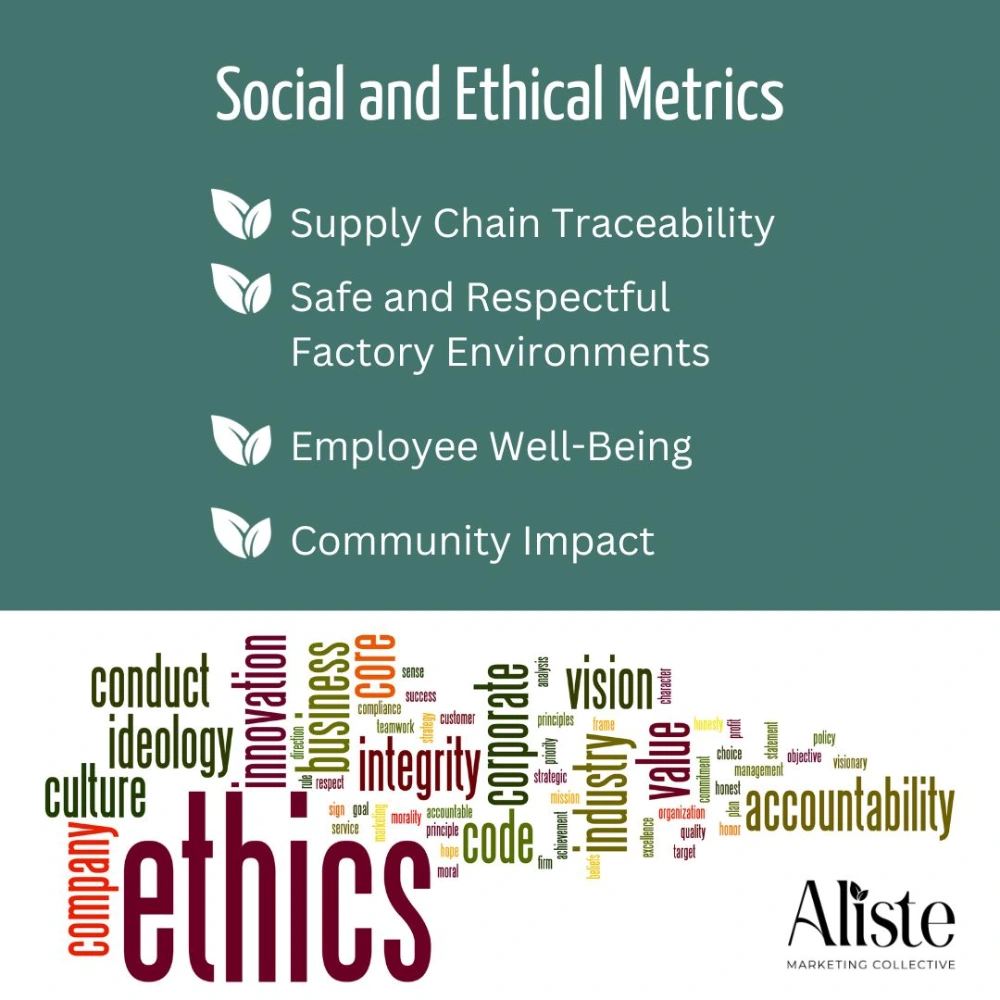
If you want to know how your brand’s practices affect people within and outside your organization, focus on social and ethical metrics. Here’s your checklist:
- Supply Chain Traceability
Traceability systems show your partners meet ethical labor, fair trade, and environmental standards. You can respond swiftly to potential risks, too.
- Safe and Respectful Factory Environments
Be on top of worker health and safety, hours worked, fair wage compliance, and grievance resolutions. Don’t think twice about partnering with third-party auditors to verify conditions.
- Employee Well-Being
How are your workforce engagement, retention rates, and diversity and inclusion statistics? As a purpose-aligned brand, you know your people make sustainability possible. Invest in them!
- Community Impact
Learn the results of your social responsibility programs, whether that’s dollars invested in local causes, volunteer hours, or partnerships that empower marginalized groups. Make sure you are making a difference.
Business Performance and Purpose Alignment Metrics
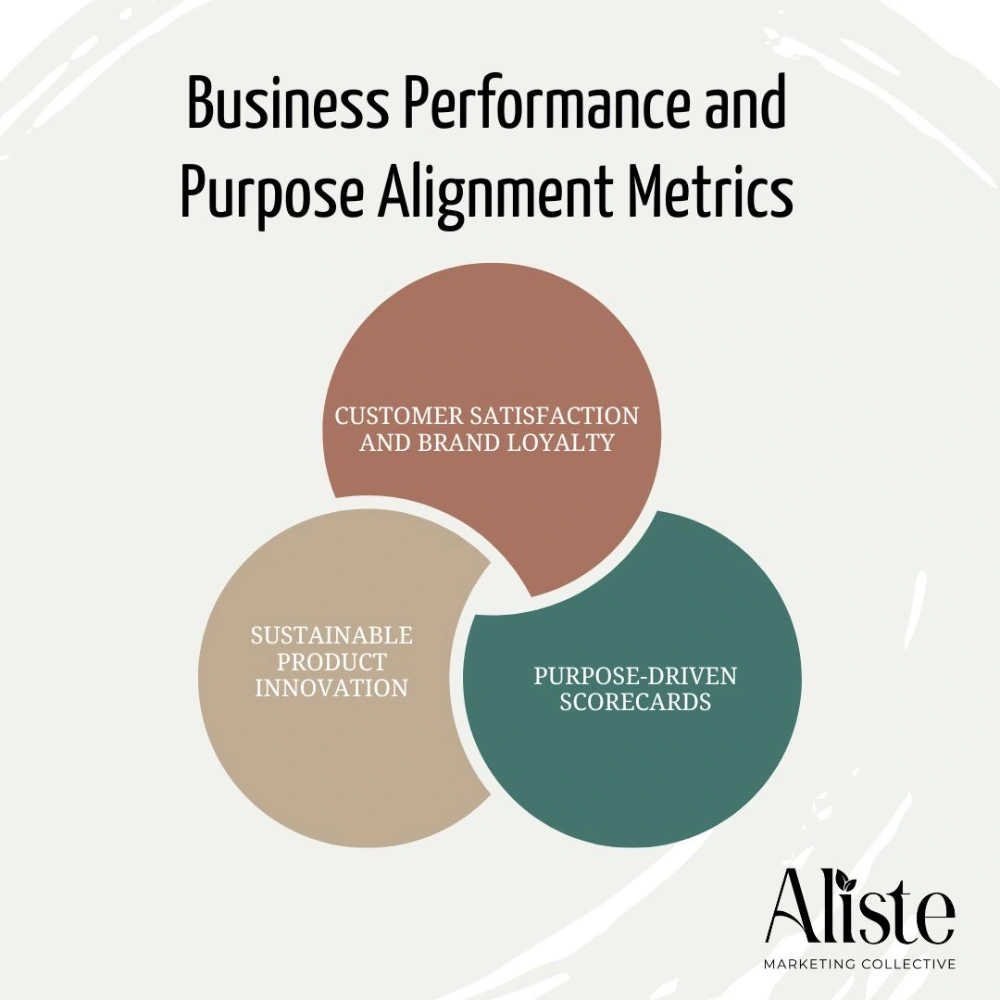
When done right, sustainability enhances brand value and future-proofs your business. What are the purpose-aligned metrics that bridge impact and profit?
- Customer Satisfaction and Brand Loyalty
Track Net Promoter Score (NPS), repeat purchase rates, and brand sentiment on social media. If customers support your mission, you’ll know. If they don’t, your metrics will show you where you must do better.
- Sustainable Product Innovation
What percentage of your products do you make with recycled content or renewable materials and design for circularity? See how your innovation efforts serve your environmental objectives and consumer demand.
- Purpose-Driven Scorecards
Sustainability isn’t a silo. Integrate your sustainability metrics into your financial dashboards! Measure profits and progress in climate goals, community investments, and ethical governance.
Implementing and Communicating Metrics Effectively
“That’s A LOT of sustainability metrics…”
Of course! We’re tackling real, serious global issues, so it’s only right for our efforts to be thorough. And once you know what to measure, make the numbers work for you.
Set Clear Targets and Benchmarks
Use Data to Drive Continuous Improvement
Don’t collect data just to file it away. Leverage it to spot gaps, rank action plans, and fuel innovation. Share learning internally and build a culture of curiosity and accountability.
Transparent Reporting to Build Credibility
Transparency is your brand’s superpower—show your receipts and let your impact do the talking. Show them you’re not green-washing through annual sustainability reports, interactive dashboards, or certifications.
Align Incentives with Sustainability Outcomes
Case Examples of Brands Leading with Sustainability Metrics
Some of the world’s most recognized brands rely on sustainability metrics to be and remain purpose-aligned. Feel free to seek inspiration from them!
Interface
- Cut Scopes 1 and 2 emissions by half by 2030
- Reduce Scope 3 emissions and transportation-related emissions by 30%
Starbucks
Starbucks has long been in the ethics game through C.A.F.E. (Coffee and Farmer Equity) Practices. With over 200 open-source indicators, from fair wages and worker protections to biodiversity and water use, the brand has set the bar for supply chain transparency and sustainable sourcing KPIs.
SCS Global Services independently verifies the program. If that’s not data integrity and accountability, we don’t know what is.
Microsoft
Microsoft aims to be carbon-negative by 2030. By 2050, the company will have removed all the carbon it has emitted since its founding in 1975. A roadmap backs these aims, so you know the company means business.
Microsoft’s plan includes cutting carbon emissions across its entire value chain and ramping up its internal carbon fee. This fee, which has been in place since 2012, now covers direct operations and supply chain, bringing sustainability into every department’s bottom line.
Embedding Metrics into Your Purpose-Driven Strategy
Sustainability is a mindset you uphold in every decision, investment, and product. Your compass is a set of sustainability metrics that tell your brand’s story in intention and action to discerning consumers!
Whether you’re just beginning your purpose-aligned journey or refining an existing strategy, the point is clear: track, communicate, and lead. Measure what matters today to define success tomorrow.
Is your brand ready to measure and amplify its sustainability impact authentically? Aliste Marketing partners with purpose-driven brands to develop clear, credible sustainability strategies and communications that resonate with conscious consumers. Contact us today to learn how we can help you track the right metrics and tell your sustainability story with impact.

